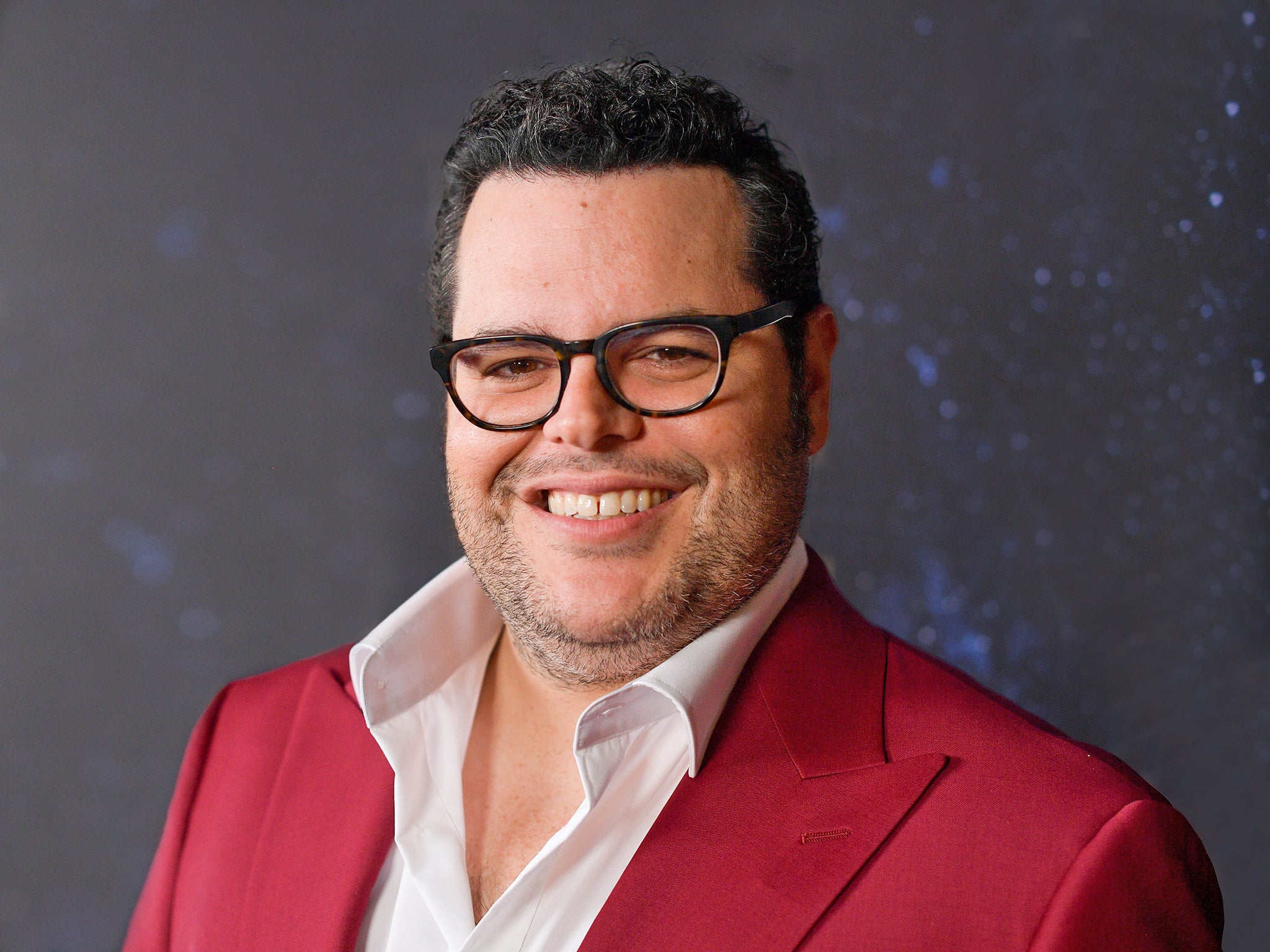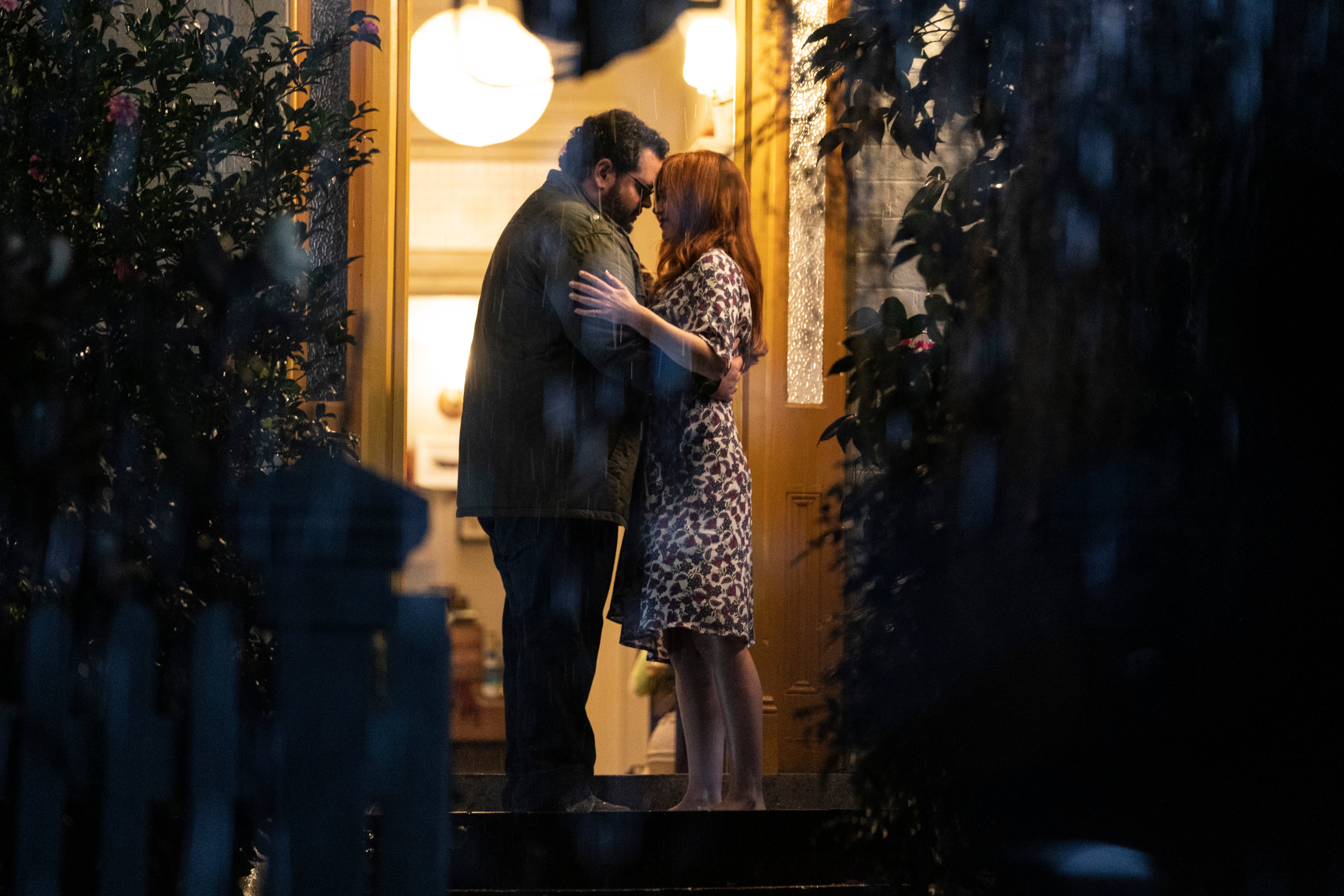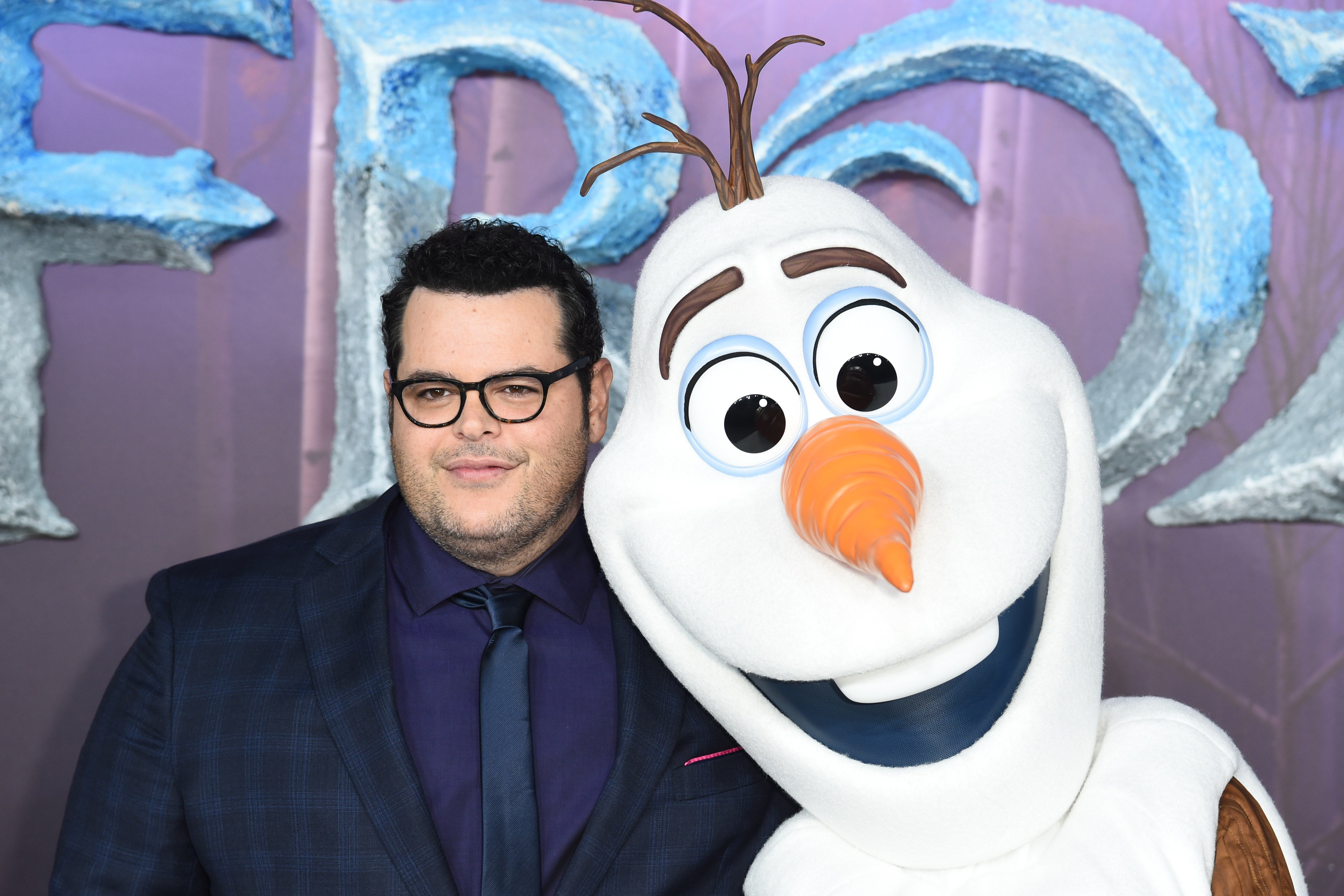Josh Gad: ‘I don’t think we did justice to what a gay character in a Disney film should be’
The actor, comedian and voice of Olaf in ‘Frozen’ tells Alexandra Pollard about his charming new TV series ‘Wolf Like Me’, his regrets over Beauty and the Beast’s disappointing ‘exclusively gay moment’, and why he thinks cinema has been ‘bombastically dumbed down’


Your support helps us to tell the story
From reproductive rights to climate change to Big Tech, The Independent is on the ground when the story is developing. Whether it's investigating the financials of Elon Musk's pro-Trump PAC or producing our latest documentary, 'The A Word', which shines a light on the American women fighting for reproductive rights, we know how important it is to parse out the facts from the messaging.
At such a critical moment in US history, we need reporters on the ground. Your donation allows us to keep sending journalists to speak to both sides of the story.
The Independent is trusted by Americans across the entire political spectrum. And unlike many other quality news outlets, we choose not to lock Americans out of our reporting and analysis with paywalls. We believe quality journalism should be available to everyone, paid for by those who can afford it.
Your support makes all the difference.Josh Gad made Disney history. Supposedly. As LeFou, Gaston’s smarmy stooge in 2017’s Beauty and the Beast, the actor, comedian and voice of Frozen’s Olaf was part of Disney’s first “exclusively gay moment” – in the grandiose words of director Bill Condon. It turned out to be a two-second dance with another man, which was neither exclusive (it was a crowd scene) nor particularly gay (the two men could easily have been friends). After 90 years of Disney ignoring queer people, this was, well, nothing.
“We didn’t go far enough to warrant accolades,” agrees Gad. “We didn’t go far enough to say, ‘Look how brave we are.’ My regret in what happened is that it became ‘Disney’s first explicitly gay moment’ and it was never intended to be that. It was never intended to be a moment that we should laud ourselves for, because frankly, I don’t think we did justice to what a real gay character in a Disney film should be. That was not LeFou. If we’re going to pat ourselves on the back, then damn it we should have gone further with that. Everybody deserves an opportunity to see themselves on screen, and I don’t think we’ve done enough – and I certainly haven’t done enough to do that.”
The 41-year-old is speaking to me from a “bone-chillingly cold” – aka 13 degrees Celsius – Los Angeles. His camera is off while he says all this, so I can’t help picturing the chirpy, buck-toothed snowman from Frozen on the other end of the line. Gad’s voice, a strange blend of grown-up and childlike, playful and earnest, was one of the many delights of the supremely successful Disney musical, which told the story of an ice queen, Elsa, who learns not to suppress her powers. When I tell him I’m still hoping they give Elsa a girlfriend in Frozen 3, I hear a booming laugh. “Well…” Another laugh. “The beauty of Elsa is she’s a vessel for all sorts of people to reflect themselves, er, back at her.”
Gad is generous with his laughter. Almost as generous as he is with the phrase “one hundred per cent”, with which he emphatically responds to almost everything I say. With one exception: when I ask if the couple at the centre of his sweet yet spiky new series, Wolf Like Me, are in a toxic relationship – as was suggested in a review I read. “I would push back on that with extraordinary force,” he says. “I do not think that their relationship is toxic. I think that their relationship is beautiful. I’ve never been in a utopian relationship where every single moment is perfect. Does that make my relationship toxic? No. I think that’s a very narrow-minded approach to what’s on screen.”
The relationship in question is between widower Gary (Gad) and advice columnist Mary (Isla Fisher). They meet when Mary crashes into the car of Gary and his 11-year-old daughter Emma, and they embark on a fairly chaotic courtship. He is emotionally repressed and anxious; she is charming but flighty, and comes with what Gad euphemistically calls “baggage”. That’s putting it mildly. I won’t spoil Mary’s secret, because Gad is so careful not to, but the title sort of does that for me. “They’re both at this really low point in their lives,” says Gad. “They’re looking for something that resembles salvation, and when they find it, they realise that it comes with a big asterisk.”
Gad is brilliant as Gary, never cartoonish with his neuroses and misanthropy. Indeed, there’s a subtlety to his performance that previous roles haven’t quite permitted – whether he’s playing Jake Gyllenhaal’s loser brother in Love & Other Drugs, Johnny Depp’s trembling secretary in Murder on the Orient Express, or a misfit missionary in The Book of Mormon on Broadway.
Gad filmed Wolf Like Me in Australia at the height of the pandemic, which meant leaving behind his wife and their two daughters in LA. “I sacrificed seeing my family for over three months, on the other side of the world,” he says, a little glumly. Did he feel guilty? “A hundred percent. There was no going back if, God forbid, anything happened.”
Still, you could say it paid off. Despite its ridiculous premise, Wolf Like Me is a surprisingly nuanced series, with astute things to say about women’s bodies, and men’s desire to control them. Mary, says Gad, is “a woman who is fiercely independent out of necessity. Gary defers and Gary understands and is loaded with empathy for who this person is.” There’s a pause. “And to be fair, I think we’re done with the trope of a man having to save a woman. We’re so far beyond that.”

During lockdown, Gad hosted a web series called Reunited Apart, where he interviewed the cast members of his beloved childhood films: The Goonies, Ghostbusters, Ferris Bueller’s Day Off, that sort of thing. Some have aged better than others. “It’s a tough exercise to show my daughters a bunch of movies from when I grew up,” he says, “because a lot of them, specifically comedies, are all about a guy luxuriating in this idea of sexualising a girl, and fantasising about how she can please him, and how she’s a prize to be won.” He didn’t really notice it, he admits, “until I watched through the prism of having two daughters and living through this period that we’re living through”.

Watch Apple TV+ free for 7 days
New subscribers only. £8.99/mo. after free trial. Plan auto-renews until cancelled

Watch Apple TV+ free for 7 days
New subscribers only. £8.99/mo. after free trial. Plan auto-renews until cancelled
That’s not to say we shouldn’t still watch these films, he adds. “I’m definitely not one of those people who’s like, ‘Burn all the movies that aren’t perfect.’ There are movies, going back to Gone With The Wind, that are flawed, but it’s still a masterpiece. I just think that we need to understand and contextualise them.”
In some respects, he thinks cinema was actually better in his childhood. “You look at a movie like Jaws, and the shark isn’t on the screen for more than 20 minutes,” he says. “And I think we’ve got bombastically dumbed down in terms of what we think an audience can handle in terms of telling a story slowly, not feeling like you have to go a hundred miles an hour in every single scene.”
There are movies, going back to ‘Gone With The Wind’, that are flawed, but it’s still a masterpiece... We need to understand and contextualise them
By the time Gad discovered those Eighties comedies, he had already set his mind on becoming a comedian. Born in Hollywood – not that one, the one in Florida – and raised by his mother after his parents split up when he was six, he discovered the power of comedy when he was still in single figures.
“There’s a reason people seek out comedy,” he says. “It’s a salve to the pain, it’s a weapon to combat the darkness, it’s an opportunity for people to break through their grief. In my case, it was not only an opportunity for me to cut through the pain, but it also was a great resource to carry my mom, whose sadness I felt on my shoulders, to a place where she could smile.” By the time he was six, he was getting told off for walking into the classroom, winking at his teacher and saying “hiya toots”.

He soon discovered he was quite good at making people laugh. “What starts off as a weapon in the form of defence becomes something that gives you strength,” he says. “The older I got, the more I realised if I could hone this skill set, then this could be not only useful in terms of navigating my own trauma, but something that I could actually make a career out of. Hell, wouldn’t that be cool?”
He took a strange route there. He went to conservatory drama school, studied at the National Institute of Dramatic Arts in Australia, then did drama at Carnegie Mellon in the US. “And I thought, ‘Oh, this is the perfect transition into Saturday Night Live’ which it most certainly was not.” He never made it onto SNL. In fact, he was getting ready to say goodbye to acting by the time he got his first big break, in a Broadway show called The 25th Annual Putnam County Spelling Bee in 2005. It all took off from there; a correspondent slot on The Daily Show, in which he played an oversexed Benjamin Franklin and an assault weapon enthusiast, among others, led to supporting roles in films, a starring role in The Book of Mormon on Broadway, and then Frozen. He’s not stopped working since.
“I never looked back,” he says. “Every step of the way there’s hardships. There are moments where you fall flat on your face, and you pick yourself back up, and you go, ‘OK, what’s next?’”
‘Wolf Like Me’ is available now on Prime Video



Join our commenting forum
Join thought-provoking conversations, follow other Independent readers and see their replies
Comments